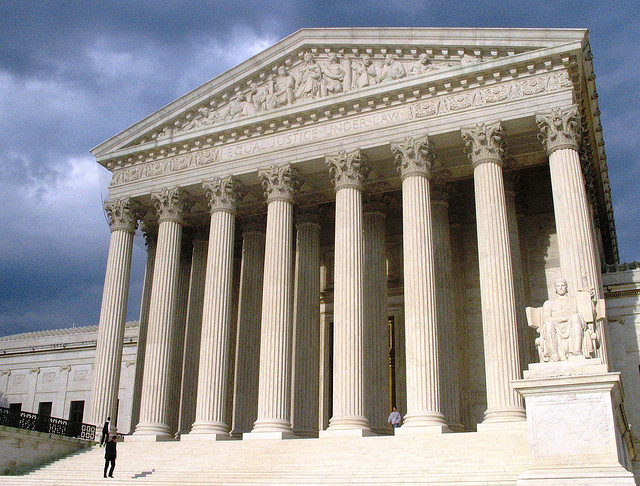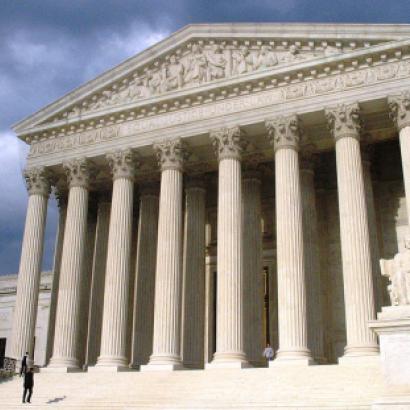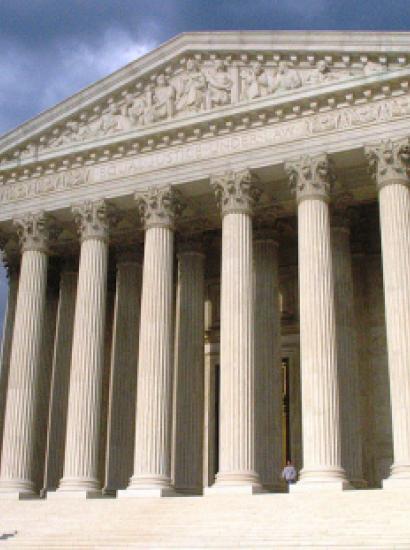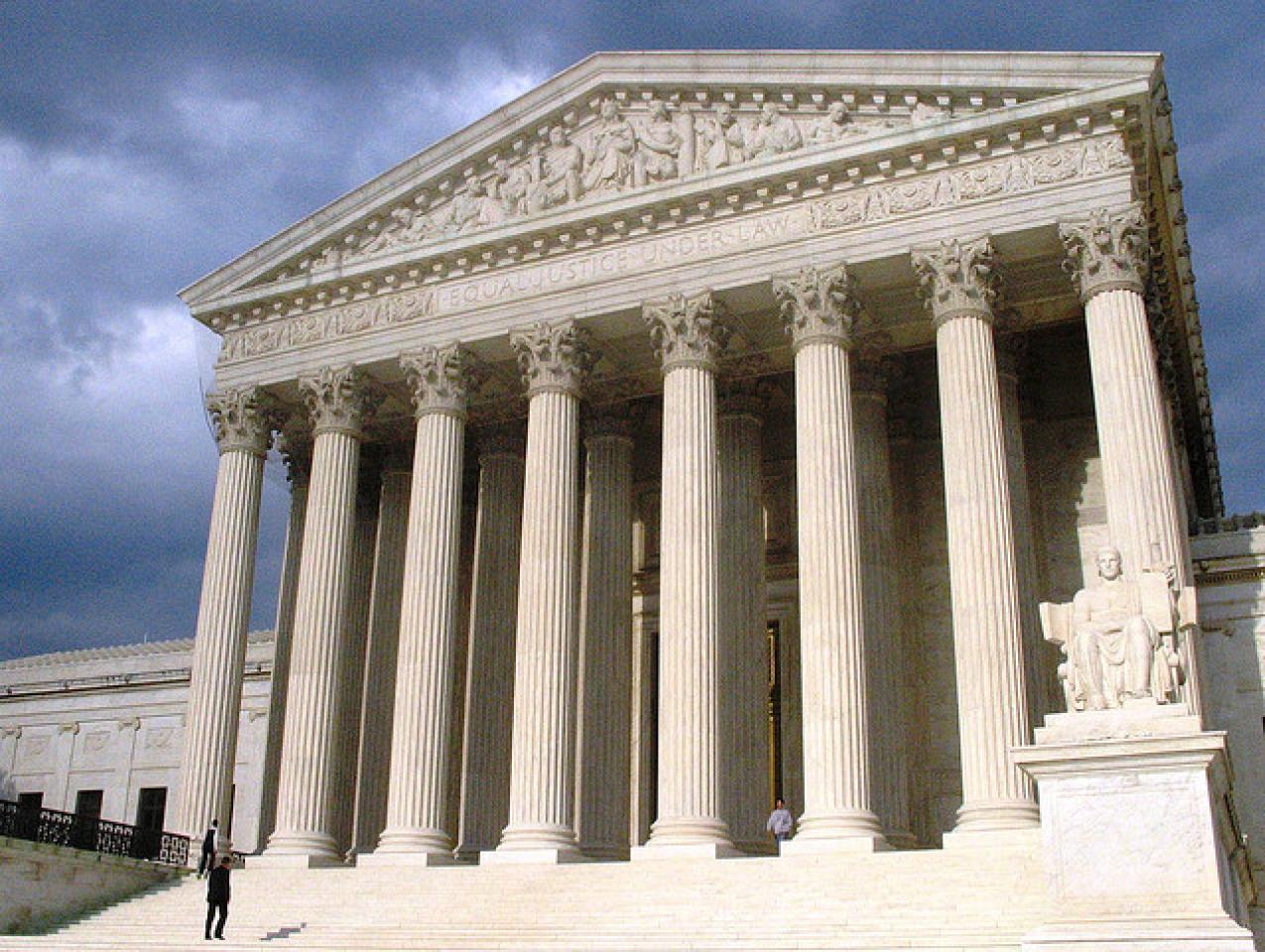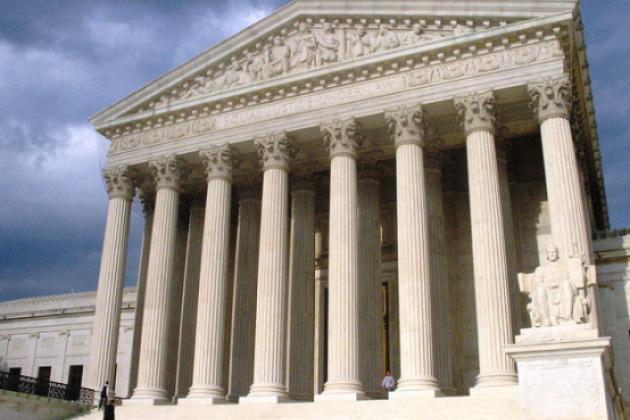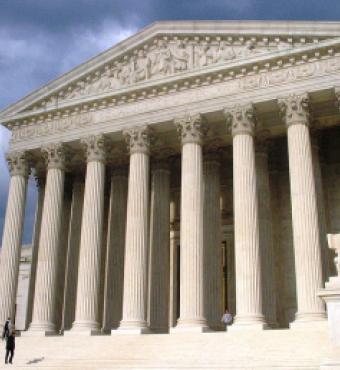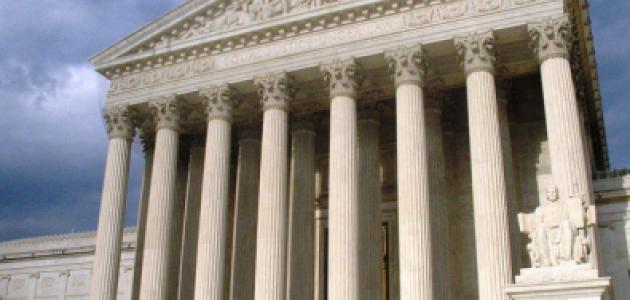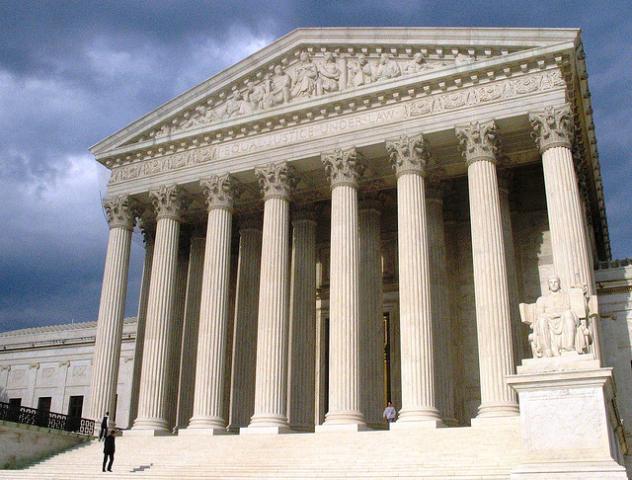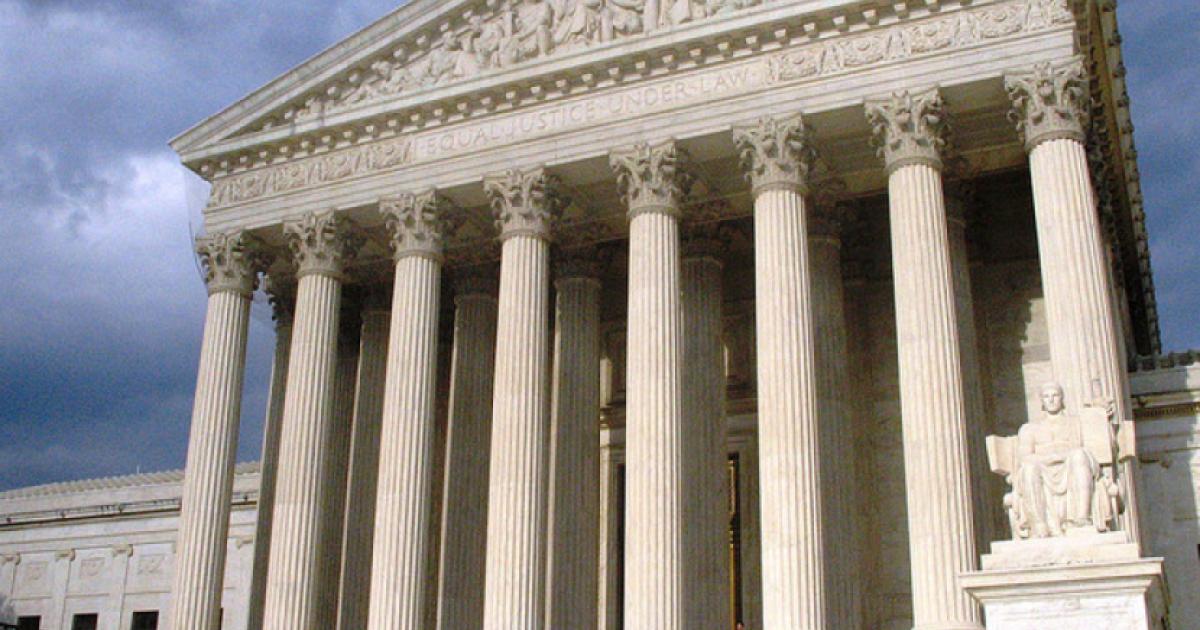- Law & Policy
With the resignation of Anthony Kennedy and the coming nomination of Brett Kavanaugh, the Senate confirmation is sure to address the hot-button issue of whether to affirm or overturn Roe v. Wade, now 45 years old. The President made a public commitment not to ask candidates about Roe, and the Senate would do well to follow its long-term tradition of not demanding the nominee comment on the soundness of particular decisions that are apt to come before them. Nonetheless, even if Roe is off the table in the confirmation process, many important collateral issues relating to abortion need a serious airing.
Here is one recent example. On June 26, 2018, the Supreme Court decided National Institute of Family and Life Advocates v. Beccera (NIFLA). The Court passed on the constitutionality of two short provisions of the California Reproductive Freedom, Accountability, Comprehensive Care, and Transparency Act (FACT Act) that require clinics that primarily serve pregnant women to provide certain notices to their customers. The Licensed Notice provision requires covered licensed clinics to provide their patients with this message:
California has public programs that provide immediate free or low-cost access to comprehensive family planning services (including all FDA-approved methods of contraception), prenatal care, and abortion for eligible women. To determine whether you qualify, contact the county social services office at [insert the telephone number].
The parallel Unlicensed Notice provision requires covered unlicensed clinics to post at their entrance, in their client waiting area, and in all their advertising materials this statement:
This facility is not licensed as a medical facility by the State of California and has no licensed medical provider who provides or directly supervises the provision of services.
The statutory scheme sought, first, to make all women aware of the full array of services that are available to them in California, often free of charge, and, second, to let pregnant women know that they were not receiving medical care from licensed professionals. However, the FACT Act does not apply to United States of Medi-Cal clinics, or otherwise provide the full scope of family planning services, including contraceptive, sterilization, and abortion services. In practice, the legislation just targeted a narrow class of clinics opposed to performing abortions on moral and religious grounds. And the disclosure provisions for unlicensed clinics were quite onerous, for in order to publish a two-word advertisement “Choose Life,” the facility must also print a 29 word disclosure in up to 13 different languages while meeting large font and other display requirements.
It is always risky for a religious organization to challenge an ordinance on equal protection grounds because its competitors are exempt from the statutory requirements. After all, California could meet that objection not by removing the requirements from religious groups but by extending them to others. By so doing, California could argue under Justice Scalia’s ill-considered decision in Employment Division of Oregon v. Smith (1990) that any facially neutral law—i.e., one that formally covers both religious and nonreligious organizations—is immune from constitutional challenge even if it impacts religious organizations far more heavily than secular ones.
It is precisely because of this pitfall that NIFLA was right to pitch its case on the simple and powerful argument that the FACT Act compels the targeted clinics to speak in ways that violate their religious beliefs in contravention of the First Amendment. As with Masterpiece Cakeshop, the claim here involves a conflict between First Amendment protections for the freedom of speech and protections for the free exercise of religion. NIFLA insisted that California can no more require these clinics to make these announcements than the United States can require Jehovah’s Witnesses to recite the Pledge of Allegiance. As Justice Robert Jackson said in West Virginia Board of Education v. Barnett (1943): “If there is any fixed star in our constitutional constellation, it is that no official, high or petty, can prescribe what shall be orthodox in politics, nationalism, religion, or other matters of opinion or force citizens to confess by word or act their faith therein.” The state can find other ways to get its message across without conscripting dissenting voices to raise their message, such as by purchasing public service announcements in newspapers and by using social media.
The reason why the choice of the next Supreme Court justice matters is that these collateral issues remain vital even if Roe v. Wade remains good law. NIFLA also resonates therefore with the Little Sisters case, Zubik v. Burwell (2016), which vacated an order that sought to compel Catholic organizations opposed to abortion to authorize the government to collect premiums from its insurance carrier to pay for contraceptive and abortion services for its employees, even though these organizations were insulated from all financial burdens. The government can get its own message across, but only through the political process.
Justice Thomas’s majority opinion in NIFLA never let go of this central theme, but it also has to confront the objection that the government may compel certain forms of speech rendered in connection with the provision of various professional or business services. One leading illustration of this principle is Zauderer v. Office of Disciplinary Council of the Supreme Court of Ohio, where the Court upheld various regulations of attorney advertising. But Zauderer could be safely put to one side for two reasons. First, as noted by Justice Byron White in Zauderer, “the [individual] interests at stake [in that case] are not of the same order” as those which involved the protection of freedom of conscience, the core issue in cases like NIFLA and Barnette. The second was that many of these regulations were intended to prevent fraud or deception in seeking attorney services. Thus, even after the Supreme Court in Bates v. Arizona (1977) struck down blanket prohibitions against advertisements by attorneys, the state nonetheless could regulate attorney speech in order to protect against fraudulent and misleading statements, such as advertisements that stated that the winning attorney would be entitled to collect a contingent fee but failed to mention that the client might also be forced to pay some portion of any expert witness fees in the case.
Conceptually, the freedom of speech has never protected against fraud and misrepresentation in any of their protean forms, which is why, for example, the Securities Act of 1933 can regulate inaccurate statements in a prospectus that offers corporate shares to the public or forbid under Section 10(b) of the Exchange Act of 1934 “the Employment of manipulative or deceptive devices,” including any untrue statement or omission of a material fact, in the purchase or sale of a security. Justice Breyer’s dissent in NIFLA sought to make much of these “professional service” exceptions to First Amendment protections, but it is a far stretch to think that a statement offering to provide one kind of pregnancy service is deceptive by word or omission because it does not mention that independent parties provide alternative services.
Justice Breyer also points to “informed consent” requirements that require a doctor to disclose the risks of any given medical procedure to their patient to advance the goals of full information and patient autonomy. More provocatively, Justice Breyer insists: “If a State can lawfully require a doctor to tell a woman seeking an abortion about adoption services, why should it not be able, as here, to require a medical counselor to tell a woman seeking prenatal care or other reproductive healthcare about childbirth and abortion services?” Fair question, to which there are two possible answers.
The first is to reject any law that requires the provider of abortion services to mention the possibility of adoption services. In effect, it would rest on the woman to make this decision by herself, with advice from others, either from private help or by further publicizing California’s existing programs. But do we really want to adopt this position? Even if abortion is legal under Roe, most people agree that it is morally problematic in a way that adoption or other surgical procedures are not. Nor do these laws requirement the extensive disclosures demanded under the FACT Act
The second response is that there is no resistance on moral or religious grounds from anywhere in the health care industry to imposing disclosure requirements on the risks of given medical procedures or to the availability of adoption. As NILFA shows, that is surely not the case with the mandate to make disclosures about the availability of abortion. Justice Breyer acknowledges that speech about abortion might be special, but ultimately lets the cat out of the bag when he writes, “Ever since this Court departed from the approach it set forth in Lochner v. New York (1905), ordinary economic and social legislation has been thought to raise little constitutional concern.” Even if that proposition is true, regulation that targets religious freedoms falls outside that class.
The single-minded focus of Justice Thomas’s majority opinion gets the issue right; the elaborate intellectual gymnastics of Justice Breyer’s dissent do not. It is clear what kind of Justice we need to fill the seat vacated by Anthony Kennedy.







